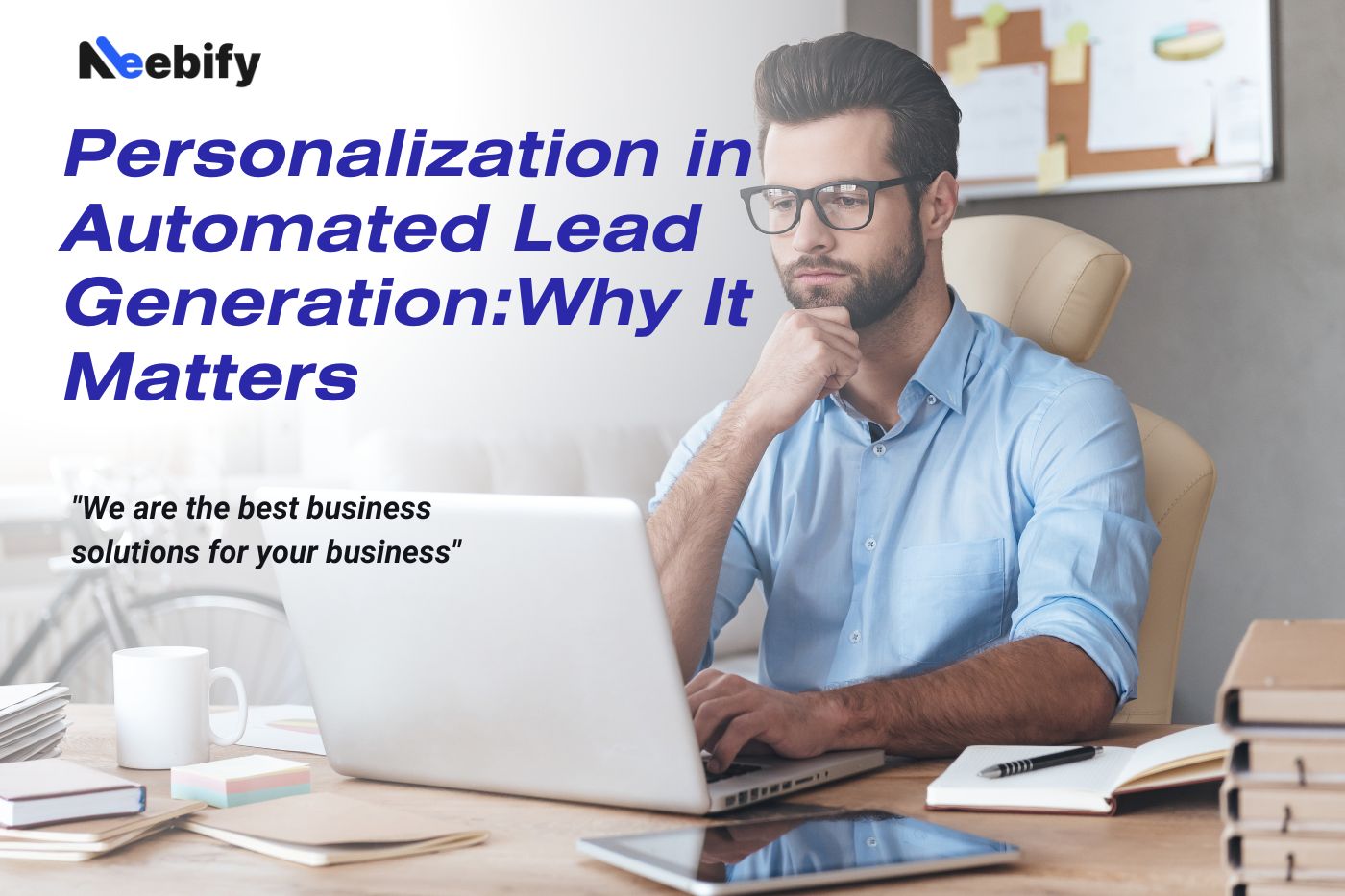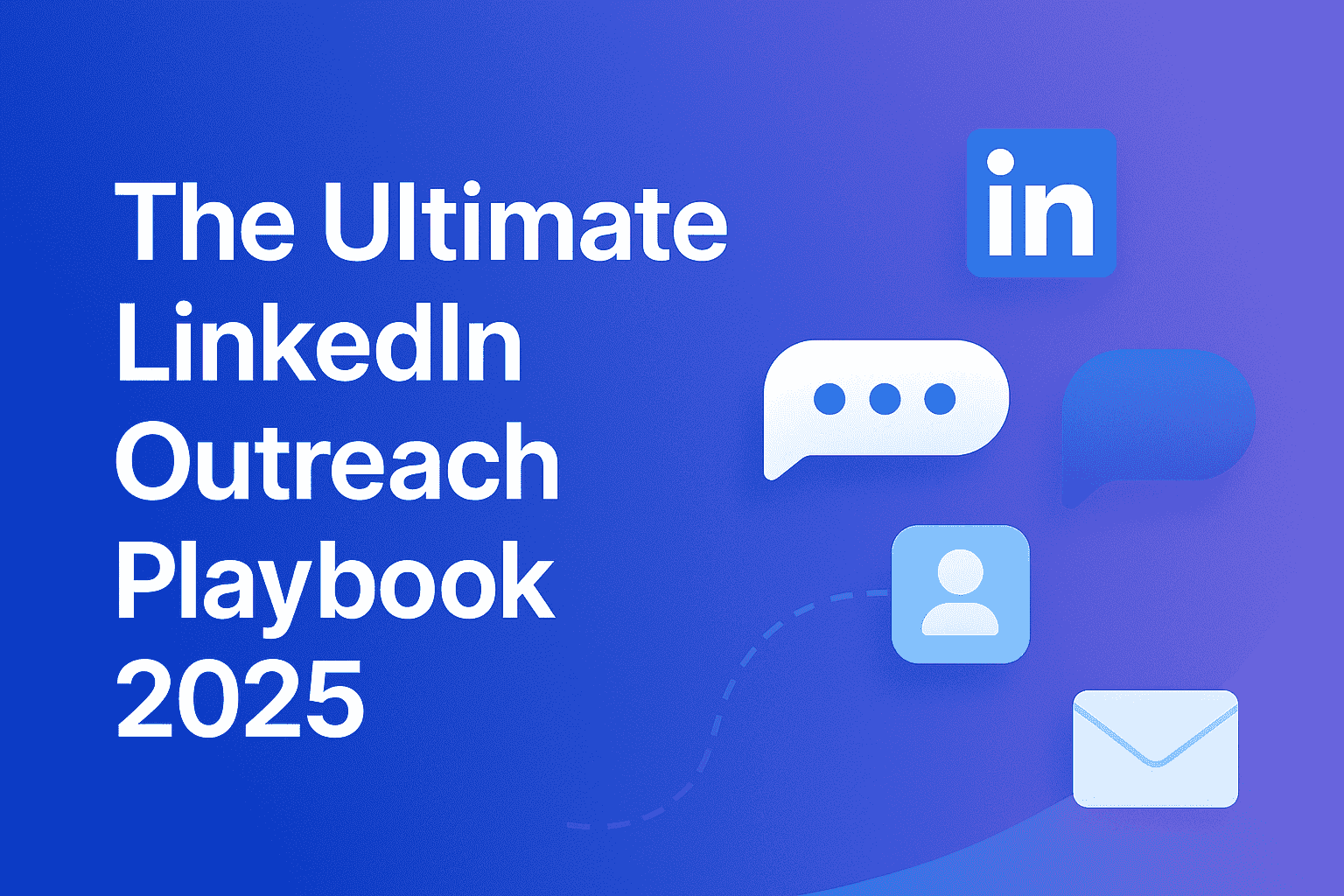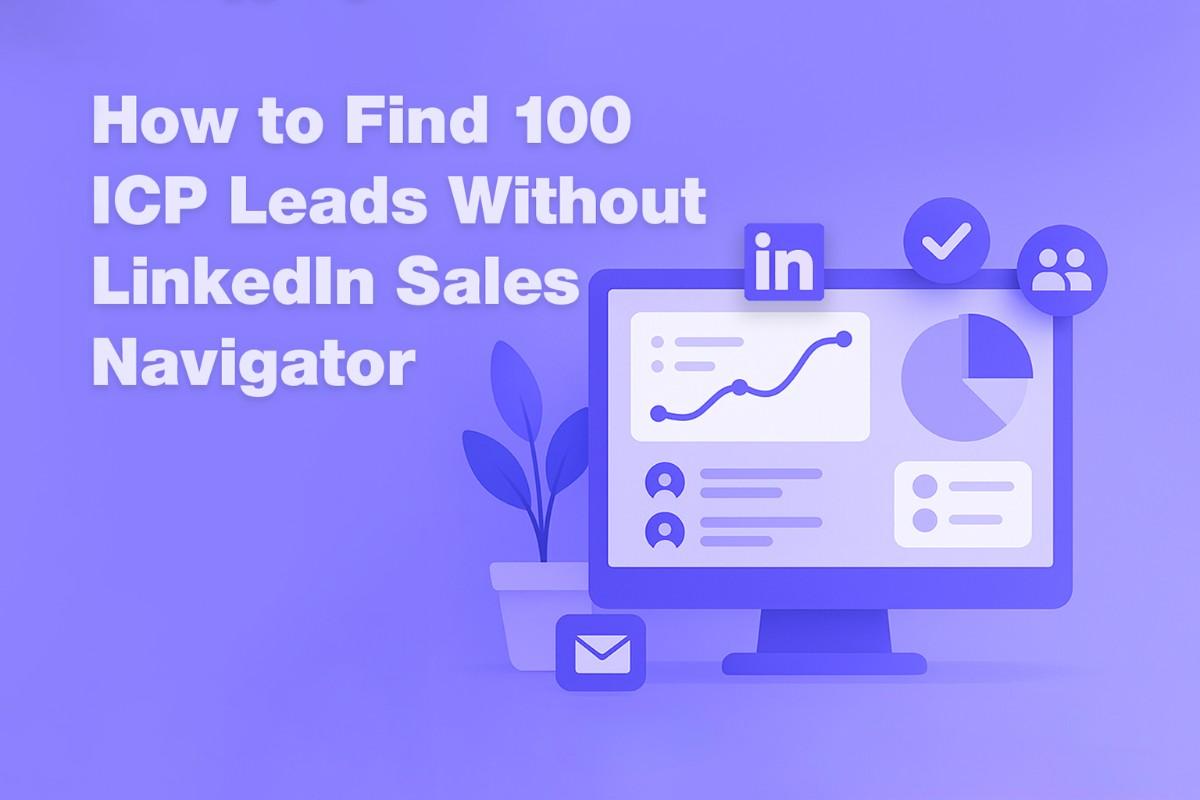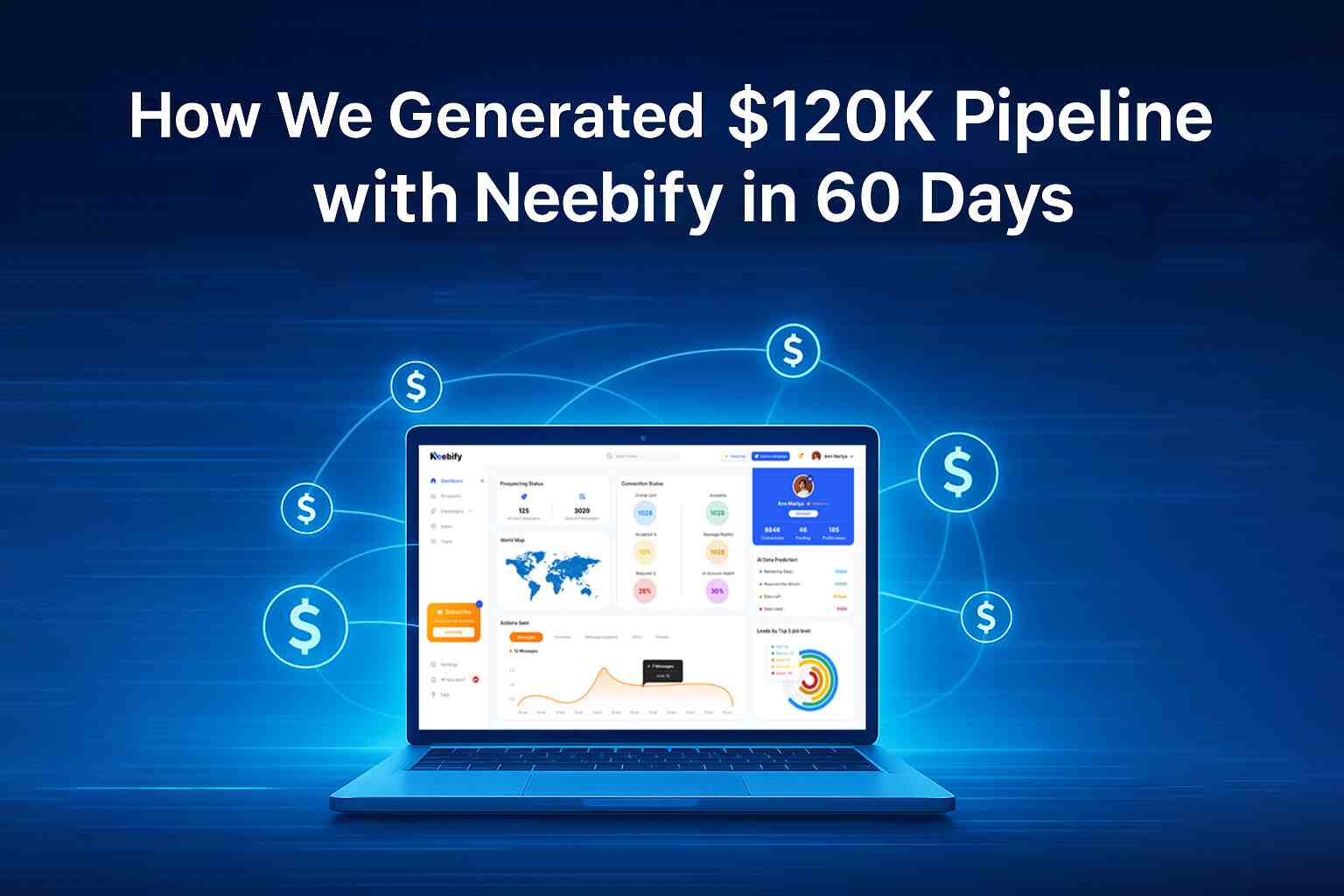Table of content
What is Personalization in Automatic Lead Generation?
In the modern, pulsating digital world, which has been greatly accelerated of late, every worthy businessperson weighs the possibility of being ground-breaking. One of the strategic means to this was personalization in automated lead generation. But what is it anyhow, and why is it so important? Delving into the conception of personalization, find its importance in the lead generation domain and figure out why it is essential for your business.
Understanding personalization in automated lead generation.
This personalization in the automated lead generation calls for tailoring one's marketing and sales activities according to the needs, preferences, and behavior of the prospect instead of treating each lead similarly. This allows you to personally communicate and interact with each according to its characteristics.
Automated lead generation is a process during which technology recognizes, attracts, and nurtures leads through the pipeline without human intervention. Bringing in personalization at the top of the funnel completely changes the way businesses engage with their prospects: make every touchpoint always relevant and impactful.
Personalization can occur at each stage of lead generation, from the very first touchpoint to the subsequent stages of nurturing, culminating in a conversion. It may be as simple as just using the lead's name in an email reply, but it can also go as complex as customizing content, offers, and suggestions depending on how a lead previously interacted with your brand.
What are the Components of Personalization in Lead Generation?
Data Collection and Analysis: The backbone of personalization is data. Relevant data about leads should be gathered, including demographic data, online behavior, purchase history, and preferences. It should be analyzed in order to draw some insights into what a certain lead requires or is interested in.
Segmentation: After capturing the data, we can segment the leads into similar groups. This allows a business to create marketing messages that resonate with segments of its target audience.
Customized content: After the segmentation, we can now create customized content to meet the peculiar pain points and aspirations of different segments of the leads. These could consist of targeted email campaigns, personalized landing pages, and ad-targeting.
Dynamic Content Delivery: Dynamically delivering personalized content is possible using automation tools. You can create an email campaign that will deliver varied messages to your leads depending on their actions, say, when a lead clicks on a link or downloads any resource.
Continuous Optimization: Personalization is never done once. It demands constant monitoring and optimization to ensure that messaging remains relevant and effective while leads go through the sales funnel.
Turning it up to hyper-personalization in automated lead generation doesn't appear to be just another fad term. It is more like an apt concept that continues to keep on producing real results for such a related business.
Why personalization in automated lead generation matters?
Tailoring within programmatic lead generation goes beyond being a clichéd trend. It’s a recipe for success because it produces real outcomes. Here's why it matters:
Enhanced Customer Experience: Personalization can make a more significant and engaging experience for your leads. Prospects get involved with a brand more when they believe that the brand cares about their needs. They shall be able to relate to the content and respond to the offers, finally converting them to become a customer. Good customer experience means higher satisfaction and building brand loyalty.
Better Conversion Rates: Better interaction means literally reaching out to the leads and making them more likely to make the desired move, be it signing up for a newsletter, downloading a white paper, or purchasing. In fact, many statistics have shown that the conversion rates have been a lot higher due to this personalization of marketing efforts.
Improved Efficiency and Scalability: The automation of the personalization process empowers your business to scale up lead generation without quality leakage. Automation tools have high efficiency when dealing with and nurturing several leads at once, ensuring attention is given to each of the leads without overwhelming your sales team.
Better Care for Leads: Not all leads are initially prepared to make a buying decision. Due to personalization, businesses nurture their leads by providing time-based, relevant content and offers that slowly direct them through the buyer's journey. It's like a slow-motion process of gaining the trust of your brand, keeping it to the top of your customers' minds when they are ready to make a purchase.
Data-Based Decisions: Since personalization is data-driven, any interaction with a lead can come up with very valuable information. This information can be used by businesses to drive their decision-making, inform changes in their messaging for better engagement, and find new opportunities.
Competitive Advantage: In a competitive marketplace, a business that highly values personalization becomes a stand-out amidst an otherwise crowded marketplace. Delivering a personalized experience differentiates your brand and builds a stronger connection with your audience, upgrading both your market share and long-term success.
There are Real world-life examples of personalization in automated lead generation.
Let's take a few examples from life to better understand the role of personalization in automated lead generation:
Much of e-commerce involves personalization: such as item suggestion, which relates to a user's history and preference. If that same user buys sports accessories, then maybe an application can prompt the user to buy running shoes or some other kind of fitness accessory. Those personal recommendations enhance the likelihood of further purchases and raise greater customer satisfaction.
Email Campaigns: A software company can personalize the process of sending targeted emails to various segments of their audience. For example, one group of emails can be sent to leads who have expressed interest in a particular product feature, while another group can be sent to those who engage in educational content. A more successful nurturing process can be achieved with this level of information relevance, moving the leads throughout the funnel toward conversion.
B2B marketers: They could deploy for targeted outreach efforts either to the industry or the job role. A marketing agency could do personalization targeting the healthcare providers by way of work cases, webinars, and content that speaks directly to the pain points this industry is experiencing. Such targeting increases the chance of interaction with decision makers and conversion rates.
Best Practices for the Implementation of Work-Based Personalization in Automated Lead Generation.
Great personalized automation in your lead generation requires the following best practices:
Invest in the Right Tools: Make sure the automation and CRM tools you are working with are really advanced in providing features for personalization. Such tools must provide for efficient data collection and analysis, audience segmentation, and delivery of personalized content.
Data Privacy: Keep data privacy a chief concern. With increased awareness about data privacy, ensure that your data collection practices are compliant with legislation and are transparent about how customer data will be treated.
Start Small: If you are new to personalization, start small with simple efforts like personalized email greetings or segmented campaigns. The more you get comfortable, start getting sophisticated about it.
Test and Optimize: Remember that personalization is an ongoing process, not to be left and forgotten. Regularly run tests with your campaigns to see what is resonating with your audience and make changes as needed. A great tool to really optimize personalized content is A/B testing.
Keep the Human Touch: It is, of course, a great power, but a human touch should be kept in your interactions. Do not make it robotic in your messaging or too impersonal. Automation should be balanced with real and empathetic communication.
Conclusion
Personalization of automated lead generation processes is a game-changer for companies looking to increase their marketing power and insights, building stronger relationships with prospects. With this package of data-driven insight and automation tools, companies can harness the creation of tailored experiences that resonate with their audience for higher conversion rates and hence increased business success.
Personalization offers a way to stand out from the noise—to provide real value to your leads where there is so much generic marketing messaging in the world. It's a feature you cannot afford to just wish to have; it's vital to a high-performance lead generation strategy. In that light, businesses can go on to use personalization to attract more prospects and convert them into customers who stick with and look forward to their brand experiences.
Get your next meeting in a
matter of minutes.
Free Trial
Latest
The Ultimate LinkedIn Outreach Playbook 2025
A practical, modern guide to mastering LinkedIn outreach in 2025 — learn how to boost reply rates, p
12/1/2025How to Find 100 ICP Leads Without LinkedIn Sales Navigator
Generating 100 targeted ICP leads doesn’t require LinkedIn Sales Navigator. Learn how to leverage fr
11/28/2025


